Graduate School of Science and Engineering
Beyond the quest, the expanding world
The Graduate School of Science and Engineering plays a role in contributing to the development of academia, industry, and society by fostering and continuously producing science and engineering personnel who will become highly specialized professionals (knowledge and technology professionals) and researchers who have acquired advanced expertise and applied skills in their fields. In the midst of rapid changes in society and industrial structure, there is a need for advanced science and engineering professionals who can support and develop current science and technology, face regional and global challenges, and contribute to the creation and realization of new value as presented in keywords such as SDGs and Society 5.0. The Graduate School of Science and Engineering, Ehime University, educates highly motivated students by providing an educational curriculum that combines advanced expertise with academic freedom, based on a broad and distinctive academic research base ranging from natural science to applied science, which is possessed by the Graduate School and the centers of the Organization for Promotion of Advanced Research and Science. The goal is to nurture and produce highly skilled and creative human resources with advanced academic knowledge, skills, humanity, a bird's eye view, and a new sense of values, who are able to work cooperatively and creatively on the regional and global stage.
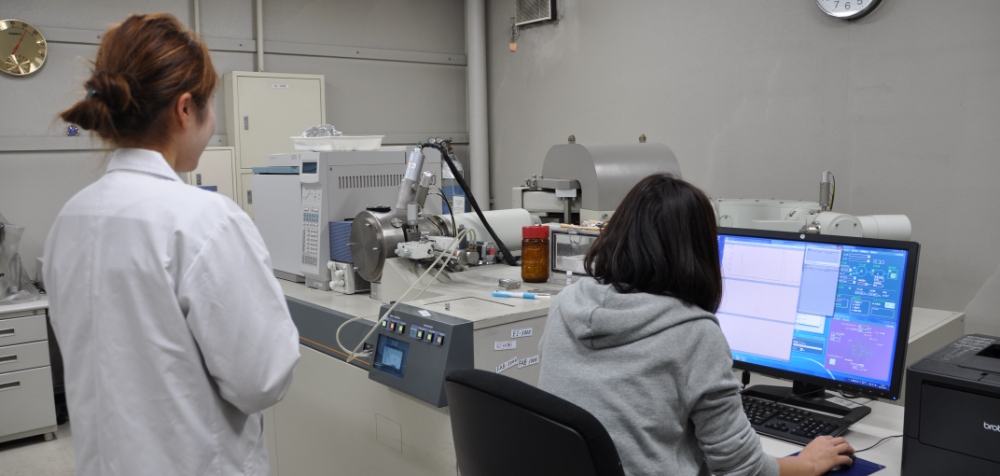
Department of Science and Engineering
Program Overview
Industrial Base Program
The Industrial Foundation Program, which consists of the fields of mechanical engineering, functional materials engineering, and applied chemistry, aims to contribute to the development of academia, industry, and society by continuously producing human resources who will support the modern industrial base and pioneer future knowledge through the development and creation of new machines, the creation of materials with new physical properties and functions, and the results of academic training and research activities related to engineering applications of life phenomena. Our goal is to contribute to the development of academia, industry, and society. We educate students who are highly interested in the development of industries that enrich humanity, and cultivate their problem-seeking and problem-solving abilities to a level that will enable them to independently conduct research and development activities. The educational objective is to contribute to society by fostering and producing highly skilled science and engineering professionals with advanced academic knowledge, skills, humanity, a bird’s eye view, and a new sense of values, who can work creatively and cooperatively on the regional and global stage.
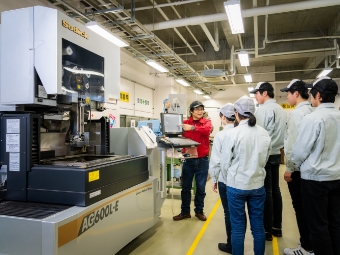
Social Infrastructure Program
The Social Infrastructure Program, which consists of the fields of Environmental and Construction Engineering, Electrical and Electronic Engineering, and Applied Information Engineering, aims to continuously produce human resources who will support modern technology and pioneer future knowledge through the results of their studies and research activities in electrical energy, electronics, and information and communication engineering, which will support the social infrastructure of cities and regions in the future. We educate students who are highly interested in the realization of sustainable social infrastructure in the era of Society 5.0, and cultivate their problem-seeking and problem-solving abilities to a level that will enable them to independently conduct research and development activities. The educational objective is to contribute to society by fostering and producing highly skilled science and engineering professionals with advanced academic knowledge, skills, humanity, a bird’s eye view, and a new sense of values, who can work creatively and cooperatively on the regional and global stage.
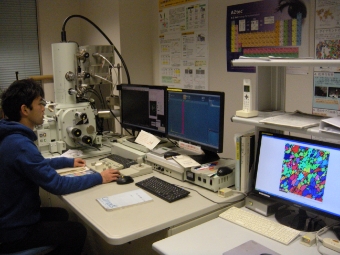
Mathematical Information Program
The Mathematical Informatics Program, which spans from mathematics and mathematical information to computer science, aims to continuously produce human resources who support modern technology and pioneer future knowledge and contribute to academia, industry, and society through the results of study and research activities that theoretically explore the phenomena inherent in mathematics and information itself, as well as exploring the field as a basic science that provides the foundation for other fields, or as an advanced tool for application. The department aims to contribute to the development of academia, industry, and society by continuously producing human resources who will support modern technology and pioneer future knowledge through their studies and research activities. The Department provides a well-balanced curriculum ranging from advanced theories in various fields of mathematics to applied mathematics, mathematical information, and computer science, and educates students with a spirit of scientific inquiry and a desire to explore issues and develop problem-solving skills at a level that will enable them to independently conduct research and development activities. The goal of our education is to contribute to society by fostering and producing highly skilled science and engineering professionals with advanced academic knowledge, skills, humanity, a bird’s eye view, and a new sense of values, who can work creatively and cooperatively on the regional and global stage.
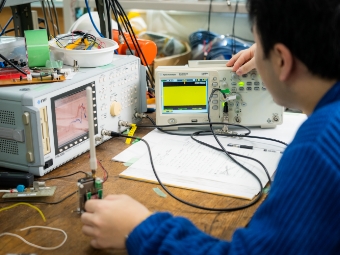
Natural Science Foundation Program
The Natural Science Program, which consists of physics, earth science, chemistry, biology, and their composite fields, aims to continuously produce human resources who will support modern technology and pioneer future knowledge, and contribute to academics, industry, and society through the results of their study and research activities. Our goal is to contribute to the development of academia, industry, and society by continuously producing human resources who will support modern technology and pioneer future knowledge. The curriculum is designed to provide both a high level of expertise and flexibility in learning based on the broad and distinctive academic research infrastructure of the Graduate School and the centers of the Organization for Promotion of Advanced Research and Science. The program is designed to cultivate students with a spirit of scientific inquiry. The educational objective is to contribute to society by fostering and producing highly skilled science and engineering professionals with advanced academic knowledge, skills, humanity, a bird’s eye view, and a new sense of values, who can work creatively and cooperatively on the regional and global stage.
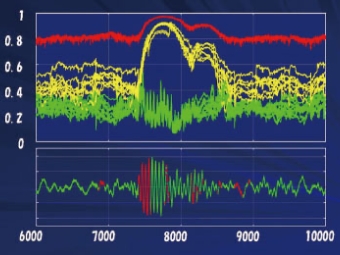
Asian Disaster Reduction Special Program
The Asian Disaster Mitigation Special Program is designed to produce highly skilled engineers, researchers, etc. who have a wide range of knowledge and problem-solving skills in social science fields, in addition to hard and soft disaster prevention technologies centered on civil engineering, to develop disaster mitigation and disaster prevention technologies that are appropriate to regional and social conditions and to implement them in society in the region in response to natural disasters that occur in Asia and Africa. We will produce highly skilled engineers and researchers who are capable of developing and implementing disaster mitigation and disaster prevention technologies that vary according to regional and societal conditions. The educational objective of the program is to cultivate the abilities of disaster prevention engineers through the study of knowledge and technologies developed and accumulated in Japan, a disaster-prone country, and through the development and research of locally applicable natural disaster prevention and mitigation technologies, and to develop human resources who will contribute to the formation of a safe and comfortable society in the Asian and African region.
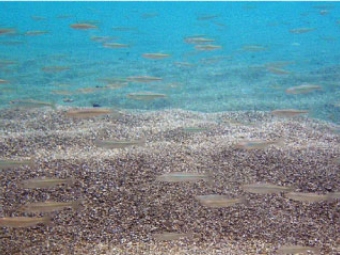
Regional Engineer Training Program
The Regional Engineer Training Program aims to contribute to the sustainable development of regional industries by producing highly skilled engineers with a broad perspective that combines advanced engineering expertise with knowledge related to technology management and administration and diverse on-site knowledge (practical knowledge) in addition to advanced engineering expertise in regional technology-based industries. In addition to establishing courses in multiple specialized fields of study required by local technical industries, the program also includes subjects related to management and administration, and research projects related to local industries to cultivate communication skills and skills to collaborate with people from different specialized fields and backgrounds in order to solve problems in cooperation with local stakeholders in a practical manner. The program is designed to cultivate practical skills in communication and collaboration with people from different fields and backgrounds in order to solve problems in collaboration with local stakeholders. The objective of the program is to contribute to society by fostering and producing highly skilled science and engineering professionals with advanced academic knowledge, skills, humanity, a bird’s eye view, and a new sense of values, who can work cooperatively and creatively on the regional and global stage.

Special Courses in Advanced Sciences
In this course, students will acquire not only advanced specialized knowledge and skills in the three fields of environmental science, earth and space science, and life science through a curriculum unique to the course, but also the basic skills of a researcher, including originality, the ability to explore problems and solve them, as well as a broad view of the academic field without being restricted to their own specialty. The program aims to nurture individuals who can exercise leadership not only in Japan but also in the international arena.

